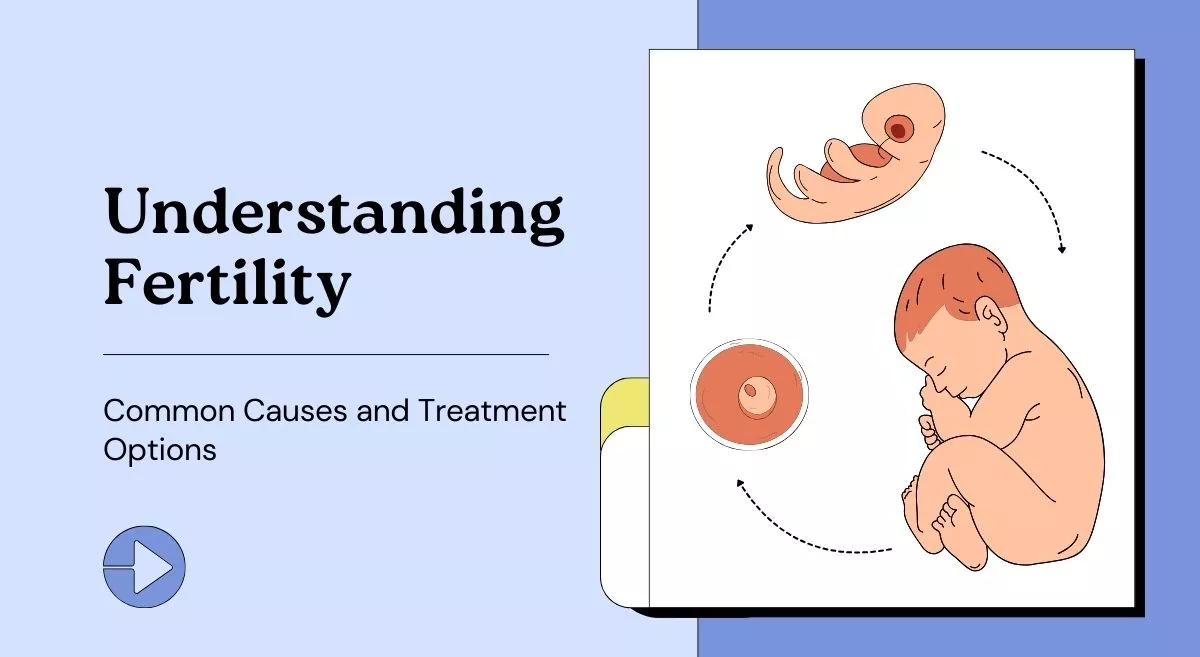When people have trouble conceiving, they often scrutinise a woman’s health first. However, studies have found that male infertility is common and can seriously contribute to fertility problems. Even so, talking about male reproductive health is still affected by myths, confusion, and unnecessary stigma. To streamline the process of conceiving, this blog debunks the most ridiculous myths about male infertility and highlights the facts.
Myth 1: Infertility Is Always the Woman’s Problem
For years, society has often placed the responsibility for fertility issues on women. But science tells a different story. In fact, around half of all infertility cases are linked to male infertility causes, making it clear that both partners play an important role when a couple struggles to conceive.
Sperm health, hormone levels, genetic factors, and physical conditions like varicocele can all affect male fertility. Prioritising men's and women's fertility health can simplify the aspect of pregnancy and generate positive results in the long run.
Myth 2: A Man’s Age Does Not Affect Fertility
Many believe that a woman’s biological clock holds utmost importance and men can have children at any time without concern. However, researchers have found that male fertility also decreases with age.
Gradually, men’s sperm tends to lose movement and shape, causing pregnancy issues and increasing the chance of genetic imbalance in children. We should be aware of this when we are planning to start families. Collaborating with Aster Hospital’s infertility specialist can help unlock various solutions for male infertility.
Myth 3: Lifestyle Choices Do Not Matter
Some believe that how they live [lifestyle choices] does not affect male reproductive health. However, this is another essential misconception that must be addressed. What you do regularly, and your lifestyle choices can have a big effect on your sperm count. Here are some examples of risky habits:
- Smoking and excessive alcohol use lower sperm count
- Obesity leads to hormonal imbalances that can reduce testosterone levels
- High heat exposure from hot tubs or tight clothing raises scrotal temperature and harms sperm
- Drug use, including certain medications, affects sperm function
Making positive lifestyle changes, such as improving diet, exercising, and avoiding environmental toxins, is often recommended before starting any male infertility treatment.
Myth 4: Fertility Issues Are Obvious and Always Come with Symptoms
Many men assume they will know if something is wrong with their reproductive health. But the reality is that most male infertility causes show no obvious signs. A man can appear completely healthy, with no issues in his sex life, and still have problems like low sperm count, poor sperm quality, or blocked reproductive ducts.
This is why fertility experts often advise couples to seek help after a year of trying to conceive without success. Visiting a fertility and IVF hospital in India can provide a clear diagnosis and guide the next steps.
Myth 5: Fertility Problems Cannot Be Fixed
Hearing the word “infertility” can feel overwhelming, but it does not always mean the end of the road. Many conditions, such as varicocele or hormone imbalances, can be treated with the right medical approach.
Even in more complex cases, assisted reproductive techniques like IVF (in vitro fertilisation) or ICSI (intracytoplasmic sperm injection) offer new possibilities for couples. Working with an infertility specialist ensures access to the best advice and treatment options based on each individual’s condition.
Myth 6: Stress Has Nothing to Do with Fertility
While stress is part of everyday life, chronic stress can disrupt hormone levels, leading to reduced sperm production. It can also affect sexual health, lowering libido (sexual desire) and creating performance issues, which further impact a couple’s chances of conceiving.
Managing stress through techniques like meditation, counselling, and physical activity is often recommended as part of male infertility treatment plans. A holistic approach improves not only fertility but also overall well-being.
Myth 7: Only Medical Problems Affect Male Fertility
Environmental factors are often overlooked, but they play an important role in male reproductive health. Constant exposure to industrial chemicals, pesticides, or heavy metals can harm sperm. Even substances found in plastics, like BPA, may affect hormonal balance over time. Men working in certain industries or living in areas with high environmental risks should consider regular check-ups at a fertility and IVF hospital in India to monitor their reproductive health.
Myth 8: All Treatments Are Expensive and Out of Reach
One common fear is that male fertility treatments are too costly or inaccessible. While some advanced procedures like IVF do come with a price, not all treatments are expensive. Sometimes, simple interventions like lifestyle changes, medication adjustments, or minor surgeries can make a big difference.
Early consultation and diagnosis help families understand what treatments are truly needed and what costs are involved. Financial planning, insurance options, and clinic support can also ease the journey.
Final Thoughts: Building Awareness and Breaking Stigma
Talking about male infertility openly helps break harmful myths and stigma. By understanding the full range of male infertility causes, couples can face challenges together and explore solutions confidently.
With the guidance of a qualified male infertility specialist and the support of a trusted fertility and IVF hospital in India, many men can improve their reproductive health and fulfil their dreams of parenthood. The journey may be emotional, but with knowledge, compassion, and the right care, couples can navigate it with strength and hope.











